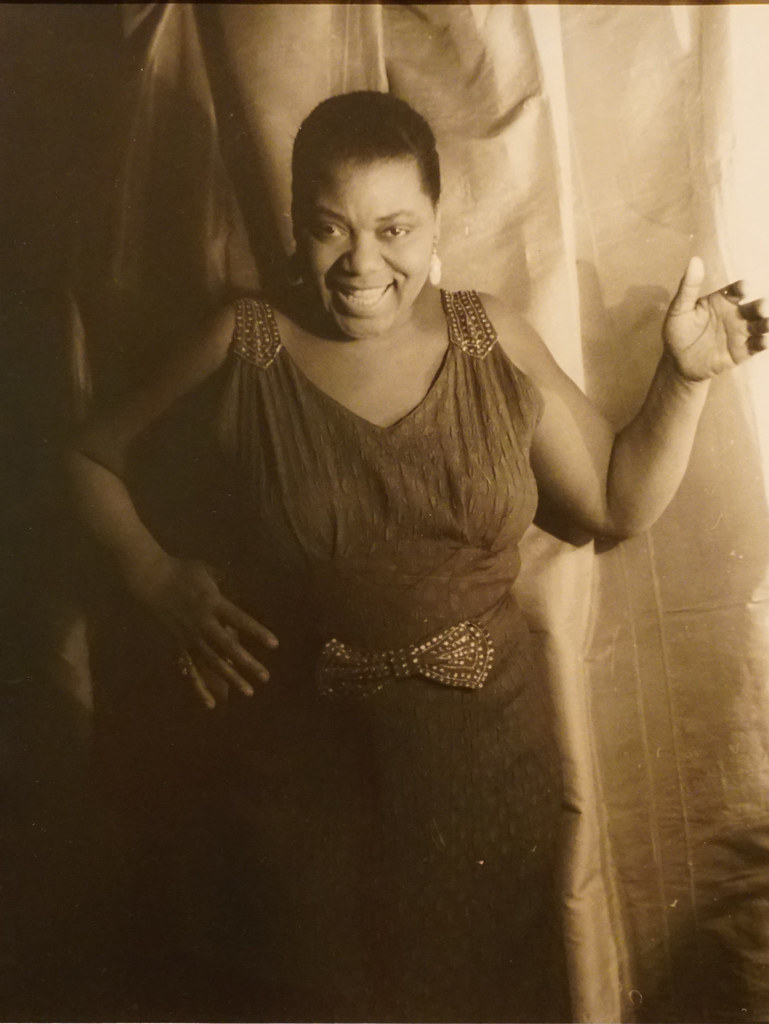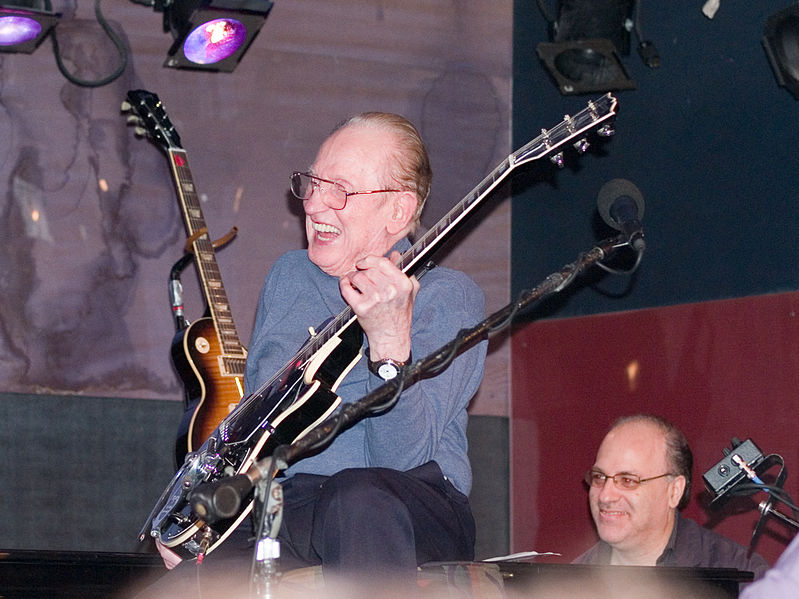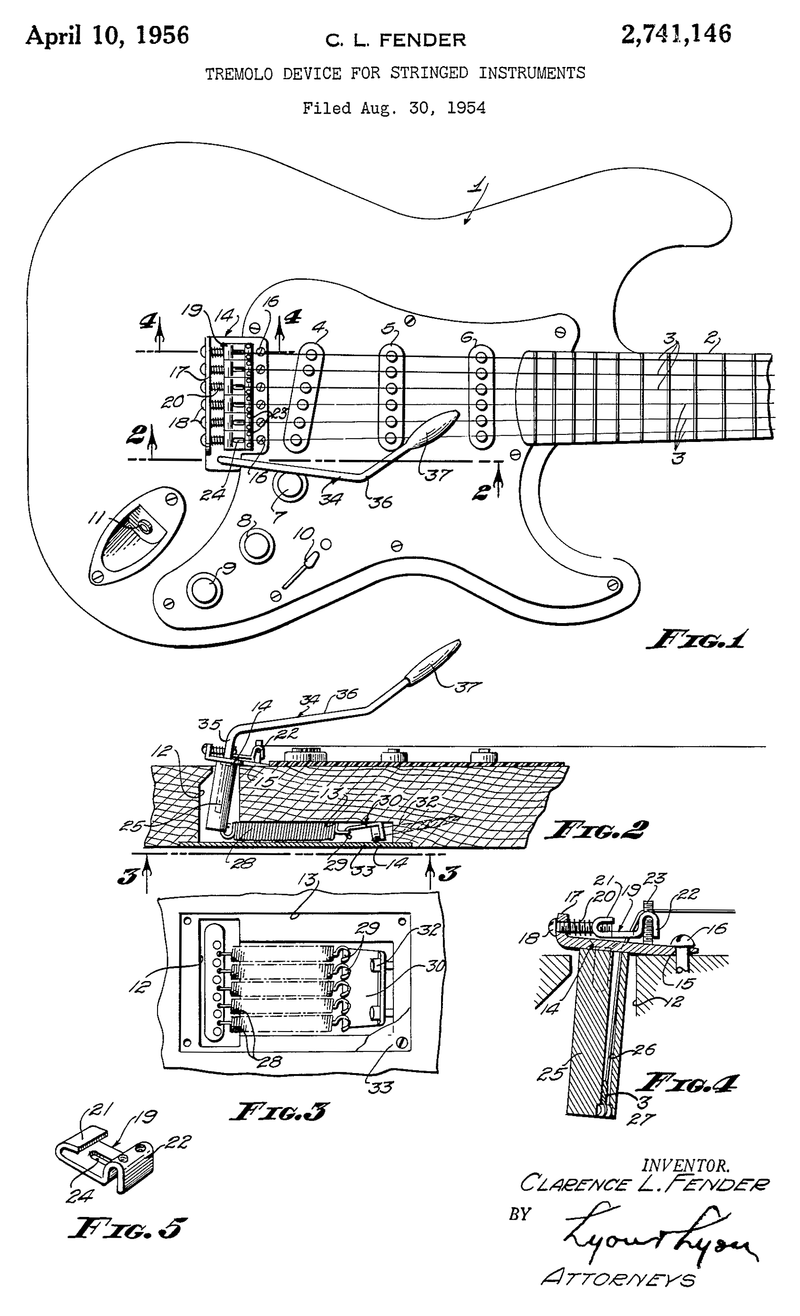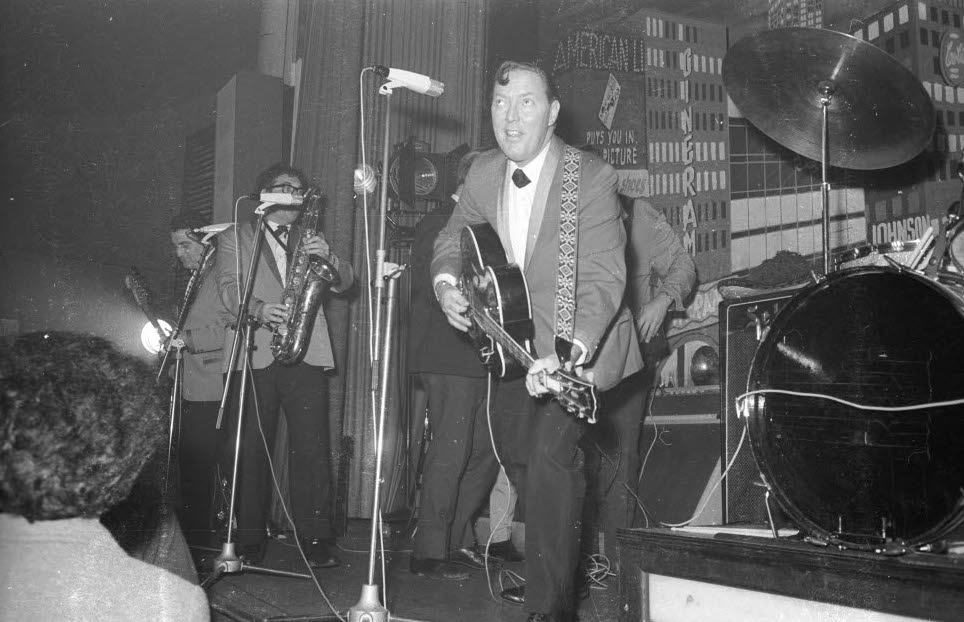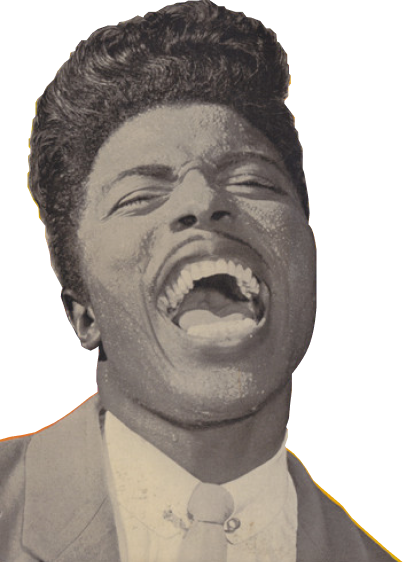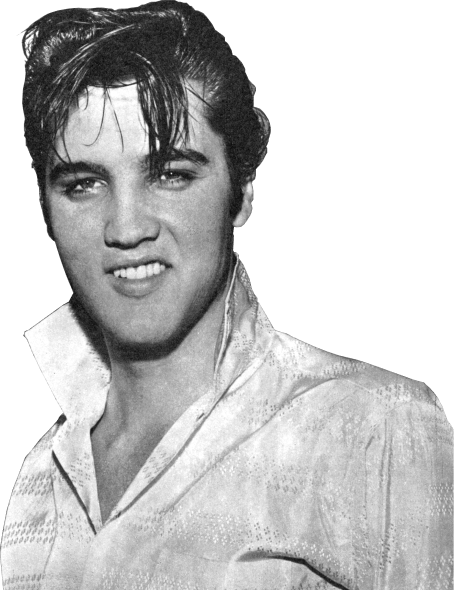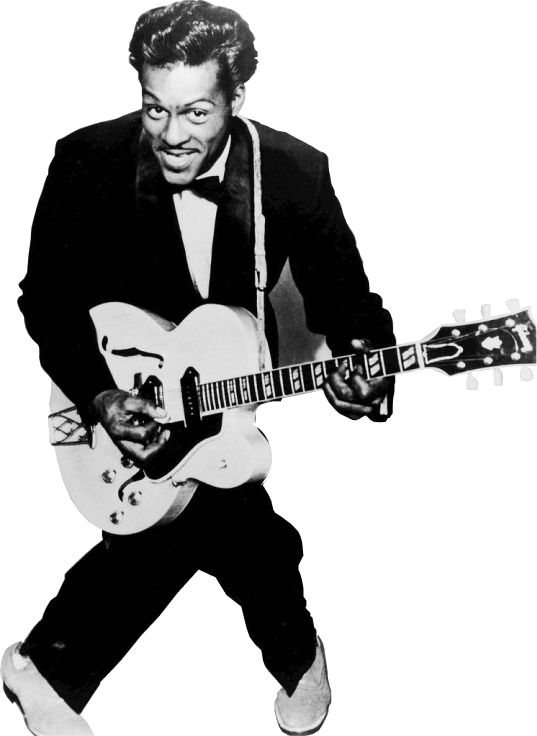Robert Johnson
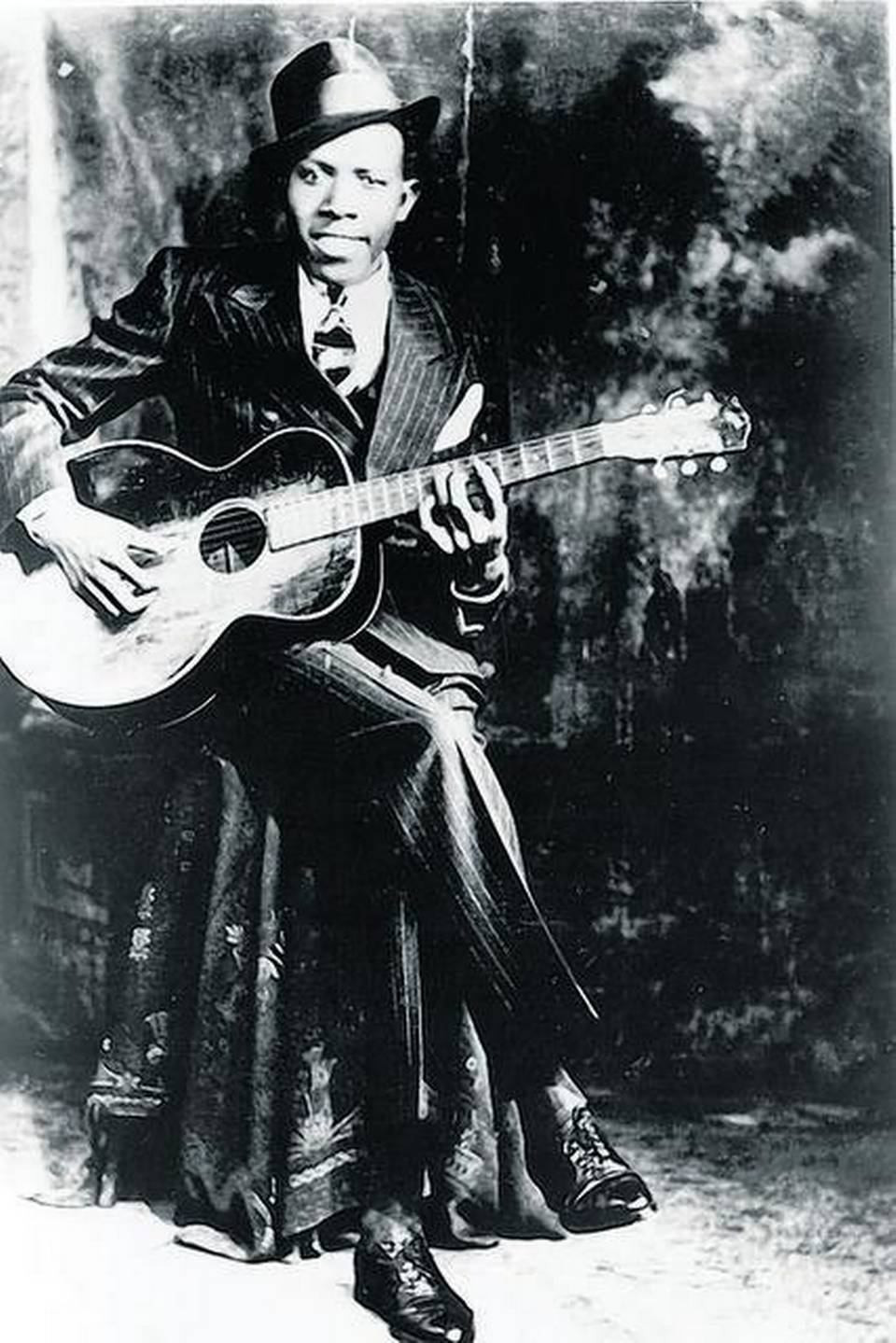
Robert Johnson, circa 1935 (© 1989 Delta Haze Corporation>)
Robert Johnson's 1937 song "Cross Road Blues" is considered one of the most important songs in the evolution of modern western music. Johnson's pain-soaked music was later embraced by the 1960s blues revival in Britain, decades after his mysterious death in 1938. Along with Johnson, black blues musicians had by the 30's and 40's emerged in the music scene of cities like Memphis and Chicago.
Radio allowed groups of blues musicians to express their music to a larger audience, now accompanied with a microphone and electric guitar at hand. In a time where black people had to sit in the back of the bus, and racial segregation permeated the American society, radio stations aimed towards a black audience became central for the Afro-American culture. As the blues took influence from other popular music at the time such as jazz, country and western, jump blues and swing these radio stations became the cradle of the genre later know as rhythm and blues (R&B).

